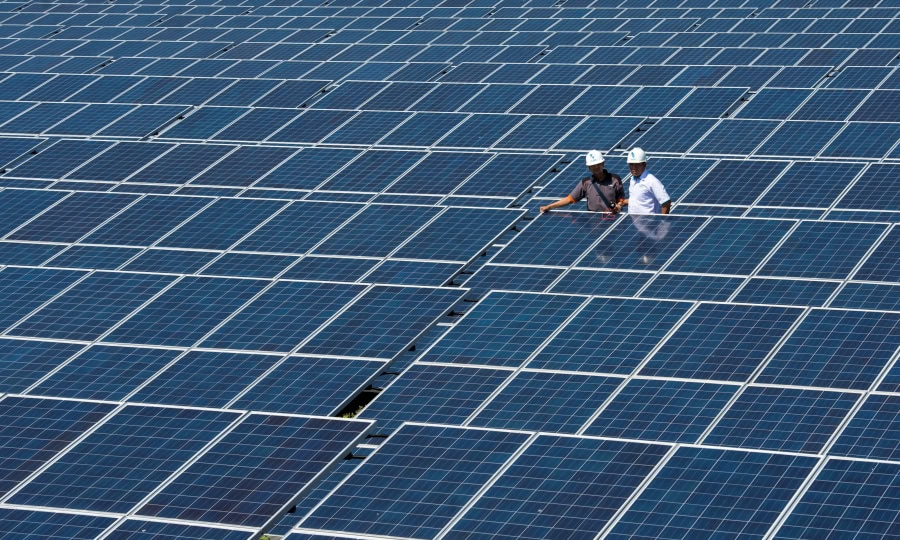LAHORE – As Pakistan progresses towards its 2030 target of generating 60% of its energy from renewable sources, the country’s energy sector is experiencing significant shifts.
Solar power, in particular, is gaining momentum, with solar panels becoming a familiar sight on rooftops nationwide.
However, the optimal size of these panels plays a crucial role in maximizing energy production.
Clean energy experts emphasize the importance of 210mm wafers, which have emerged as a transformative factor in the global solar market. According to Trendforce, a leading research firm, the production capacity of these wafers has soared to 457GW, making up nearly 40% of global output.
In Pakistan, Trinasolar has taken the lead among various stakeholders, with an impressive 120GW of module shipments. This highlights the increasing preference for larger-sized wafers in the country.
Researchers have identified several advantages of the 210mm technology platform over the smaller 182mm cells.
These include higher efficiency, improved logistics, and greater value across diverse applications, from large-scale power plants to residential setups.
The slightly larger size of these wafers allows for more surface area, leading to higher power output per panel. For example, Trinasolar’s 210mm modules can generate up to 625W of power with an efficiency rate exceeding 23%, significantly outperforming previous models.
Experts believe that the adoption of 210mm modules marks a significant advancement in solar technology, rather than just a passing trend. In Pakistan, this transition is already producing impressive results. At SAK Steel, Trinasolar’s Vertex 665W modules are powering an electric steel furnace using solar energy. The use of bifacial ground-mounted modules, elevated slightly above the ground, has resulted in a notable increase in production. Similarly, Shalimar Filter Industries has powered its entire factory with solar energy, achieving estimated annual savings of $24,000 in electricity costs and a return on investment within 14 to 16 months.
These examples demonstrate the economic and environmental benefits that Trinasolar’s 210mm modules bring to Pakistan’s market. As the demand for renewable energy continues to grow, these modules are poised to become a dominant force, offering high efficiency, standardized dimensions, and maximum value across various applications.
With Trinasolar leading global sales for 210mm modules and successful implementations like those at SAK Steel and Shalimar Filter Industries, Pakistan’s path towards a sustainable and energy-secure future appears bright. The shift to 210mm technology is not merely a technological upgrade but a crucial step in the nation’s renewable energy journey.










